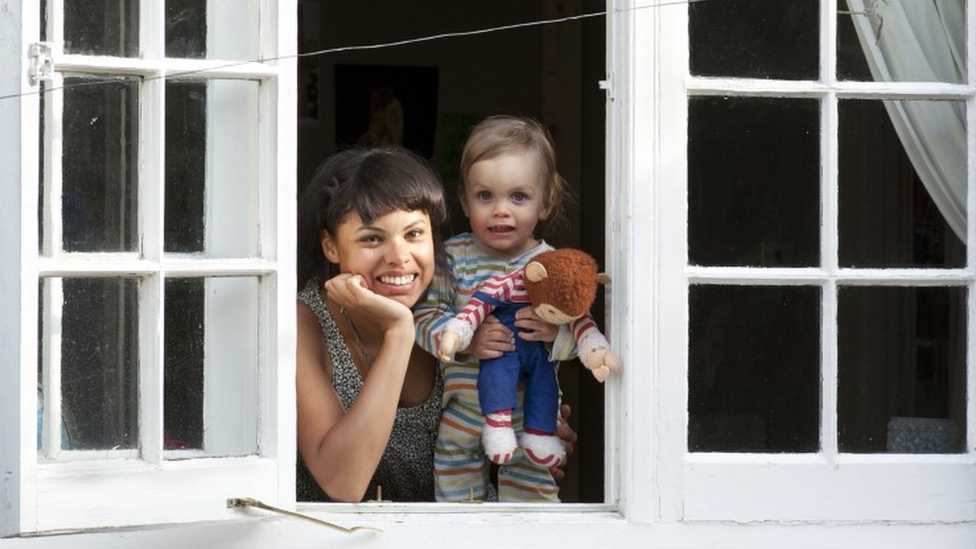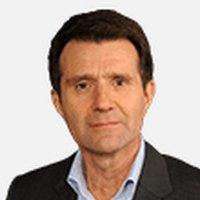Covid-19: Health staff in plea for better protection
- Published
- comments
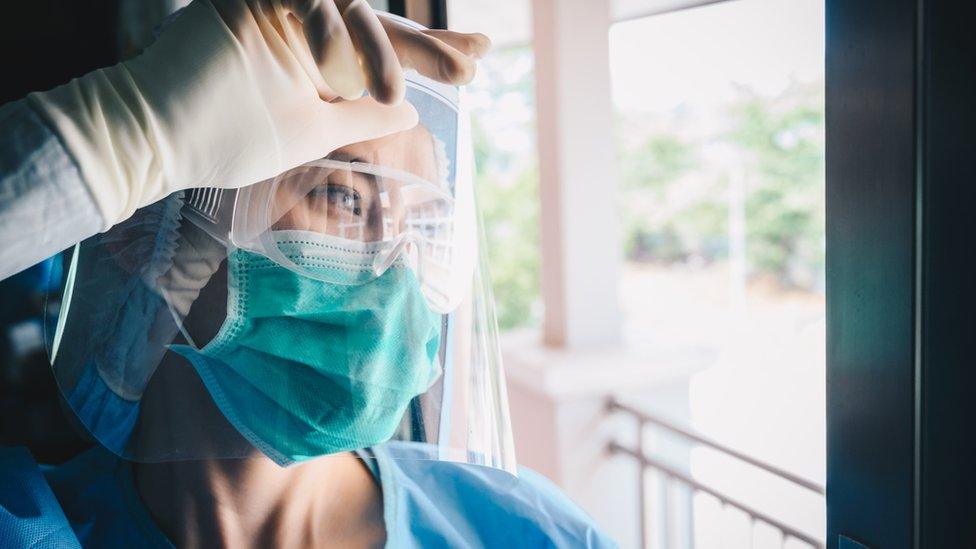
More than 20 healthcare organisations, including those representing nurses, doctors, surgeons and therapists, are calling for stricter UK guidelines to be introduced on face masks and other personal protective equipment (PPE).
In a virtual meeting with officials, they will say existing rules leave them vulnerable to infection through the air, especially by new Covid variants.
The unprecedented appeal will see them argue that other countries, such as the United States, protect their health workers with higher-grade equipment.
It is thought to be the first time health and care organisations have united on a single issue in this way - a sign of the desperation many feel about the need for staff to be kept safe.
The delegation will include representatives of the British Medical Association, the Royal College of Nursing and many other professional organisations and unions.
On the government side will be about 20 of the most senior officials from all four UK nations, many involved in setting the guidelines on personal protective equipment (PPE).
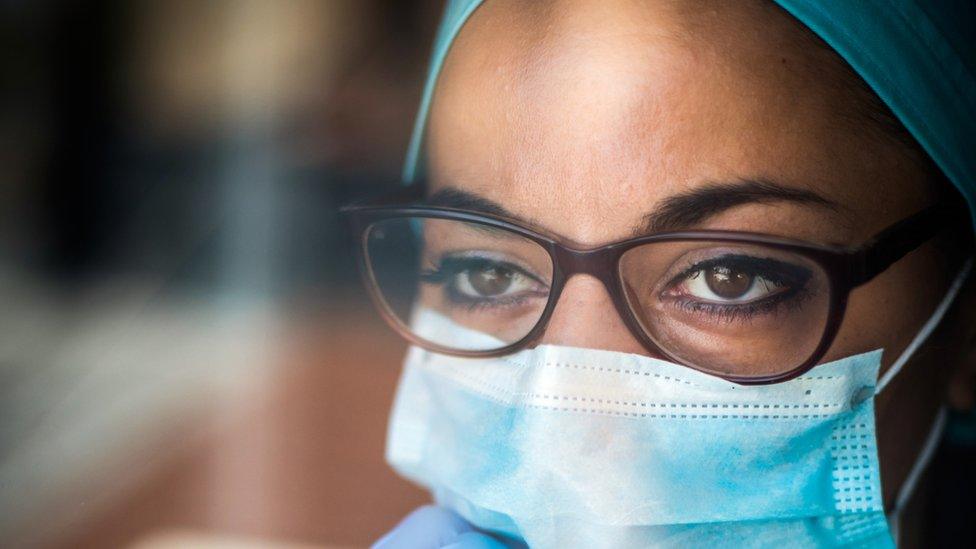
What do health and care workers want?
With an estimated 1,000 health and care workers killed by Covid in the UK, the plea is for the risks of airborne transmission to be recognised in hospitals and other care settings.
That means all staff caring for Covid patients being issued with masks specifically designed to guard against infectious aerosols.
The US government is among many that require health workers to wear what are called N95 respirators - widely judged to be more effective than the standard-issue surgical masks mandated in the UK.
"It is the inconsistency that is getting beyond a joke," according to Dr Barry Jones, a leading figure in the campaign, who will be presenting evidence at the meeting.
He and his colleagues in the nutritional care association BAPEN first raised their concerns with Public Health England as far back as April last year.
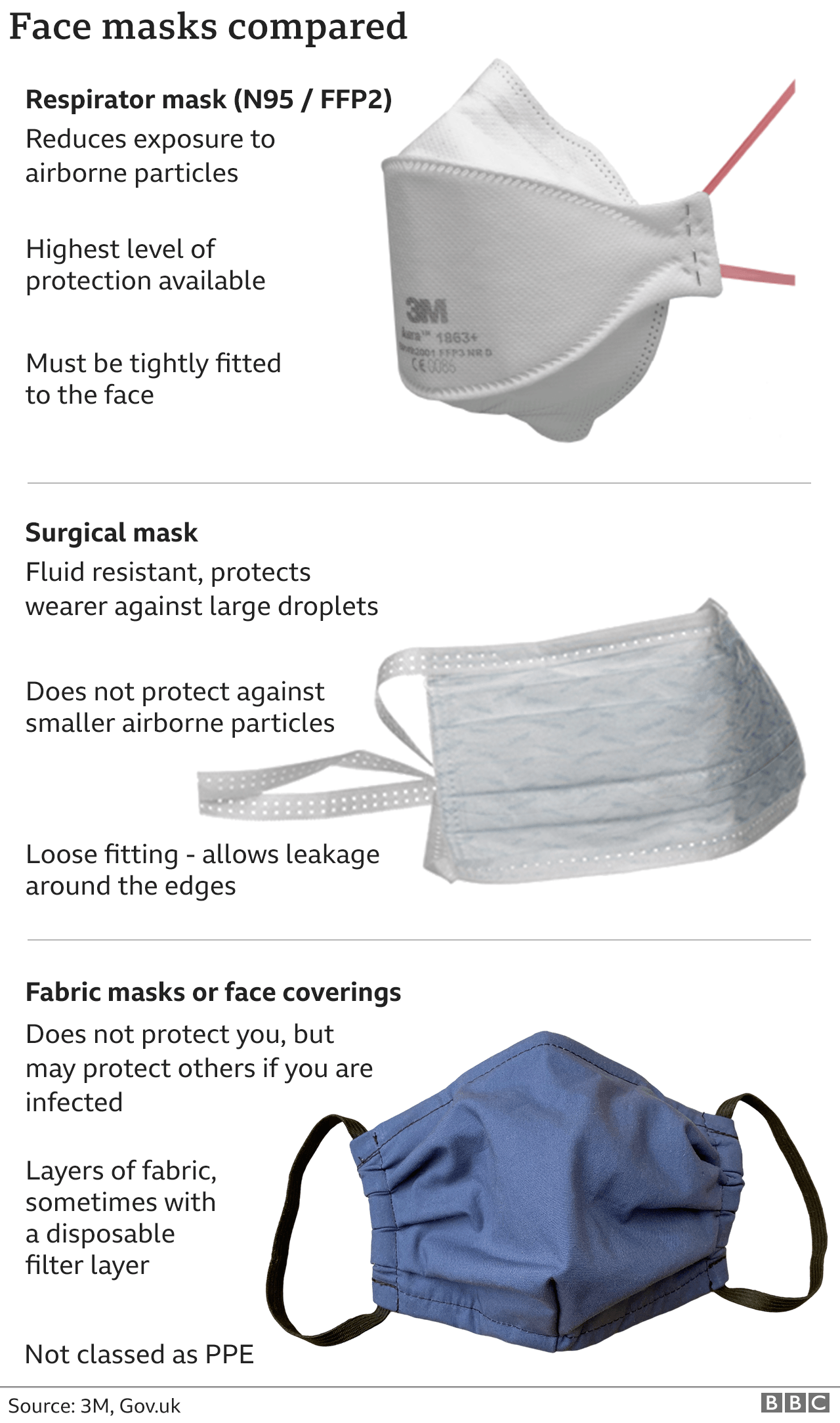
They objected to the strict guidance that means that only certain procedures considered likely to generate aerosols entitle staff to a high standard of mask known as an FFP3.
They say there is a growing body of research highlighting how other processes - including simply breathing and coughing - can produce far more aerosols than those on the official list.
"If a patient is breathing 12 times a minute and you're providing close quarters care for them for 15 minutes or more, then the chances are you will get a large dose of the virus if you are just in a surgical mask," Dr Jones told me.
"If the present guidelines were effective, why have we had such a high death rate among the public, and health and care staff?"

A SIMPLE GUIDE: How do I protect myself?
AVOIDING CONTACT: The rules on self-isolation and exercise
WHAT WE DON'T KNOW How to understand the death toll
LOOK-UP TOOL: Check cases in your area

What solution are they proposing?
One objection to the higher grade FFP3 or N95 masks is that they cost far more than the thinner surgical ones.
But trainee surgeon and researcher Dr Gillian Higgins, who will also be addressing the meeting, believes she has an answer.
She and her colleagues have set up a charity, MedSupplyDrive UK, that has donated 500,000 items of PPE to hospitals, and also researched ways to make the use of FFP3 masks cheaper.
In discussions with manufacturers, they have found several options for reusable FFP3 masks.
She says these would have a better fit than existing models, could be made in the UK, and would work out at far lower cost over the course of a year.
Dr Higgins says: "It is not pie in the sky, we have worked out how to do this, and we have just got to get on with it."
She also points out that distributing these devices widely would end the "postcode lottery" of which health and care workers get better protected.
At least 17 hospital and ambulance trusts have already decided to break with official guidance by equipping their staff with FFP3 masks, but the majority have not.
Which face covering is best to wear?
What will the meeting achieve?
According to Kamini Gadhok, chief executive of the Royal College of Speech and Language Therapists, the hope is to work constructively towards a solution.
She is concerned that recently updated guidance issued by Public Health England, which allows staff to perform their own risk assessment to decide on PPE, "isn't strong enough".
"It is not rocket science, we know the virus is airborne, we know surgical masks don't protect you from airborne viruses, and we're still in a dangerous situation with new variants. So why not apply a precautionary approach?
"What we are asking for is about saving lives - so why not do it?"
For Tracy Nicholls, chief executive of the College of Paramedics, the meeting is about trying to avoid more losses.
So far 30 paramedics and ambulance crew have been killed by Covid, and the big fear is having to care for a Covid patient in the back of an ambulance with only a surgical mask for protection.
"What is really important is rebuilding trust and confidence in the guidance because we know from surveys that that has been lost," she said.
The Department of Health and Social Care said the safety of staff is a "top priority", adding that the PPE recommendations are based on the latest clinical evidence.
A spokesperson said: "Emerging evidence and data are continually monitored and reviewed, and the guidance will be amended accordingly if needed."

THE MEANING BEHIND EMOJIS: The validation that comes with cultural recognition
LOVE IN LOCKDOWN: Stephen Fry narrates a new musical romance

Related topics
- Published22 April 2021
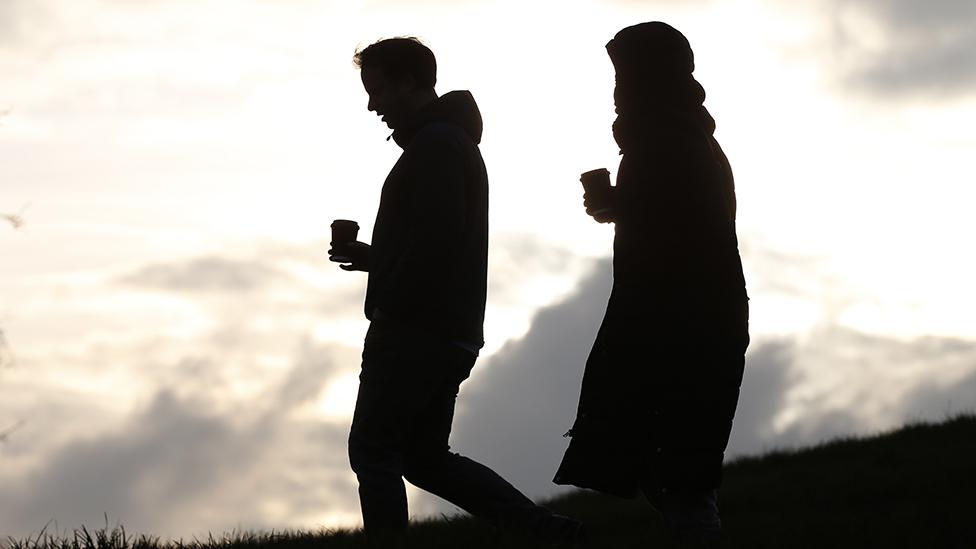
- Published6 February 2021
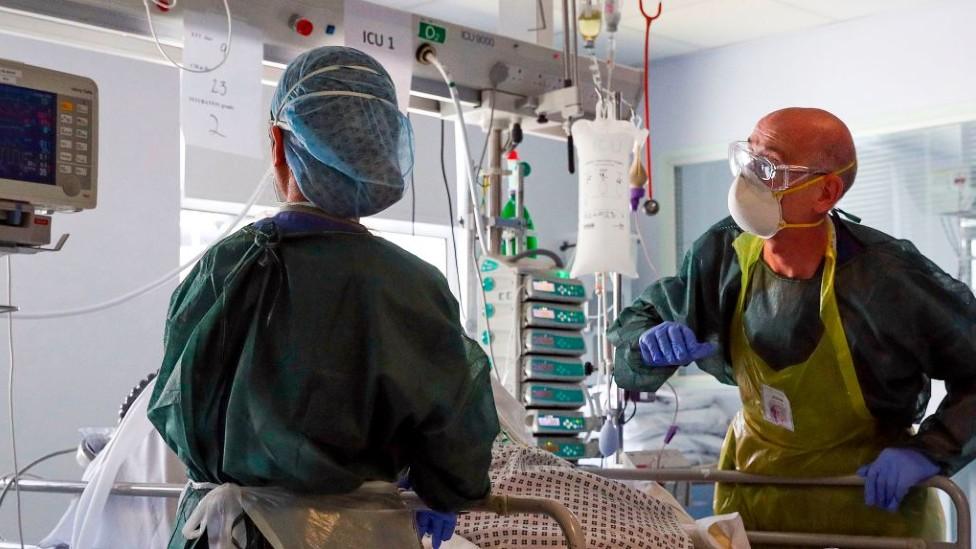
- Published14 July 2021
